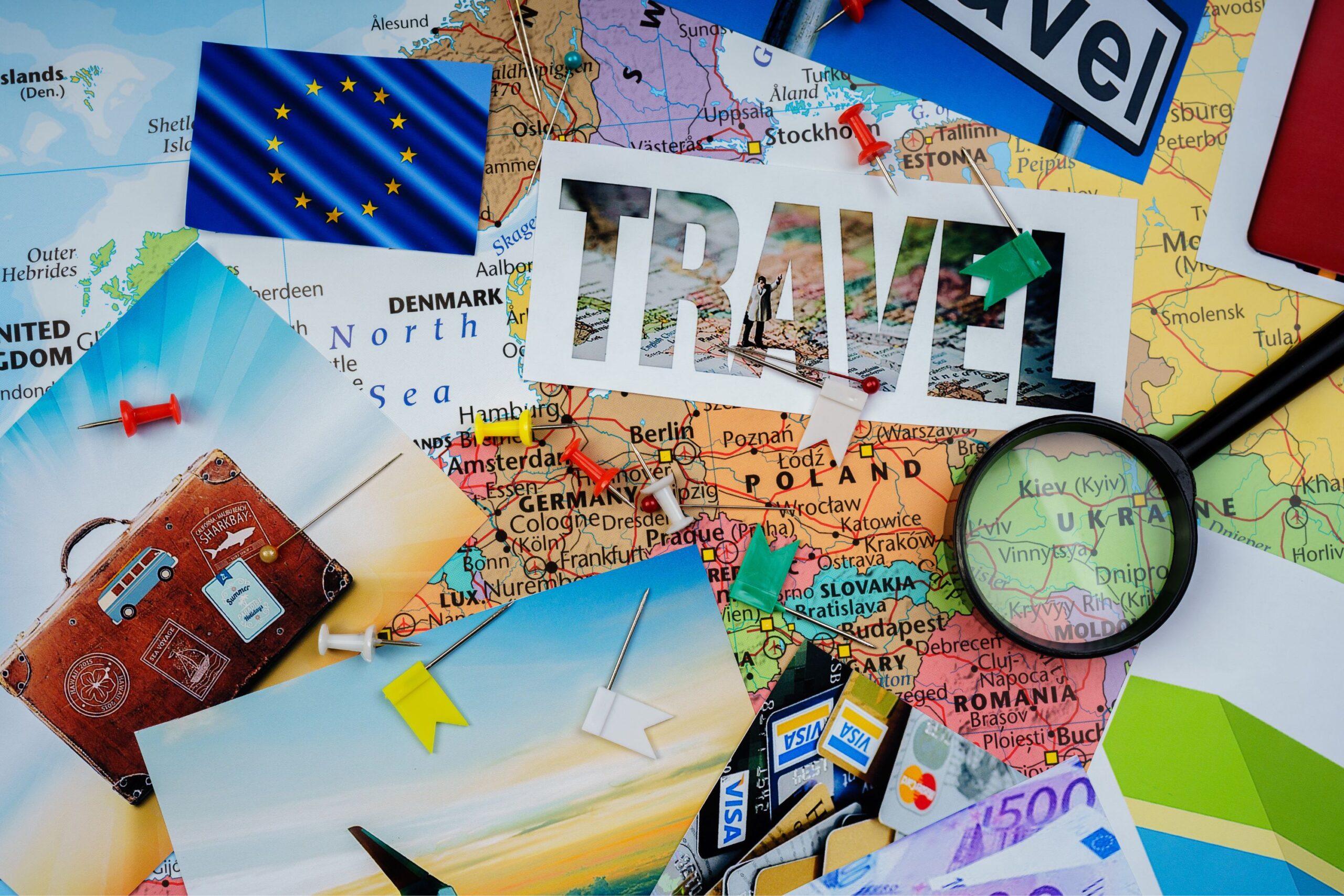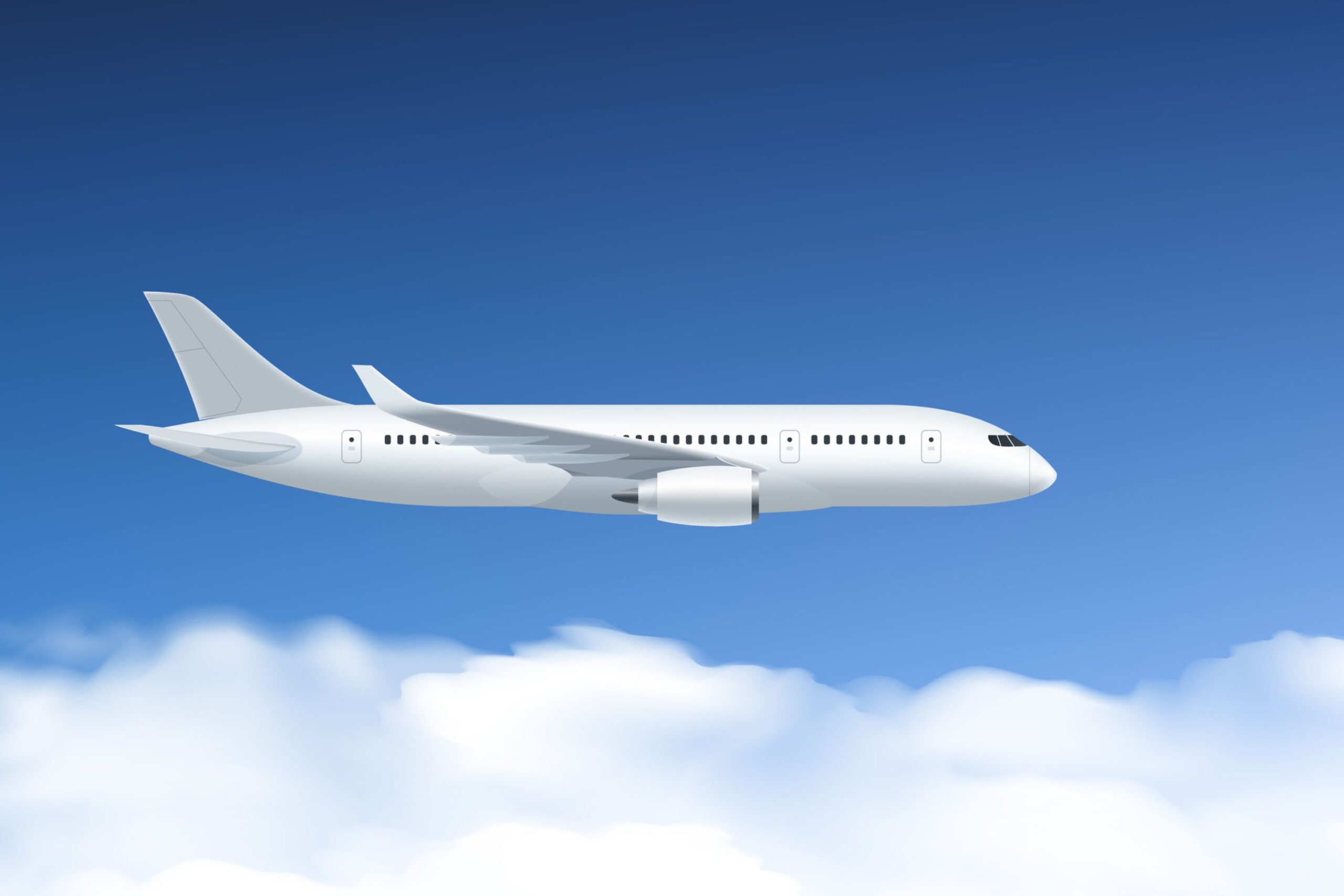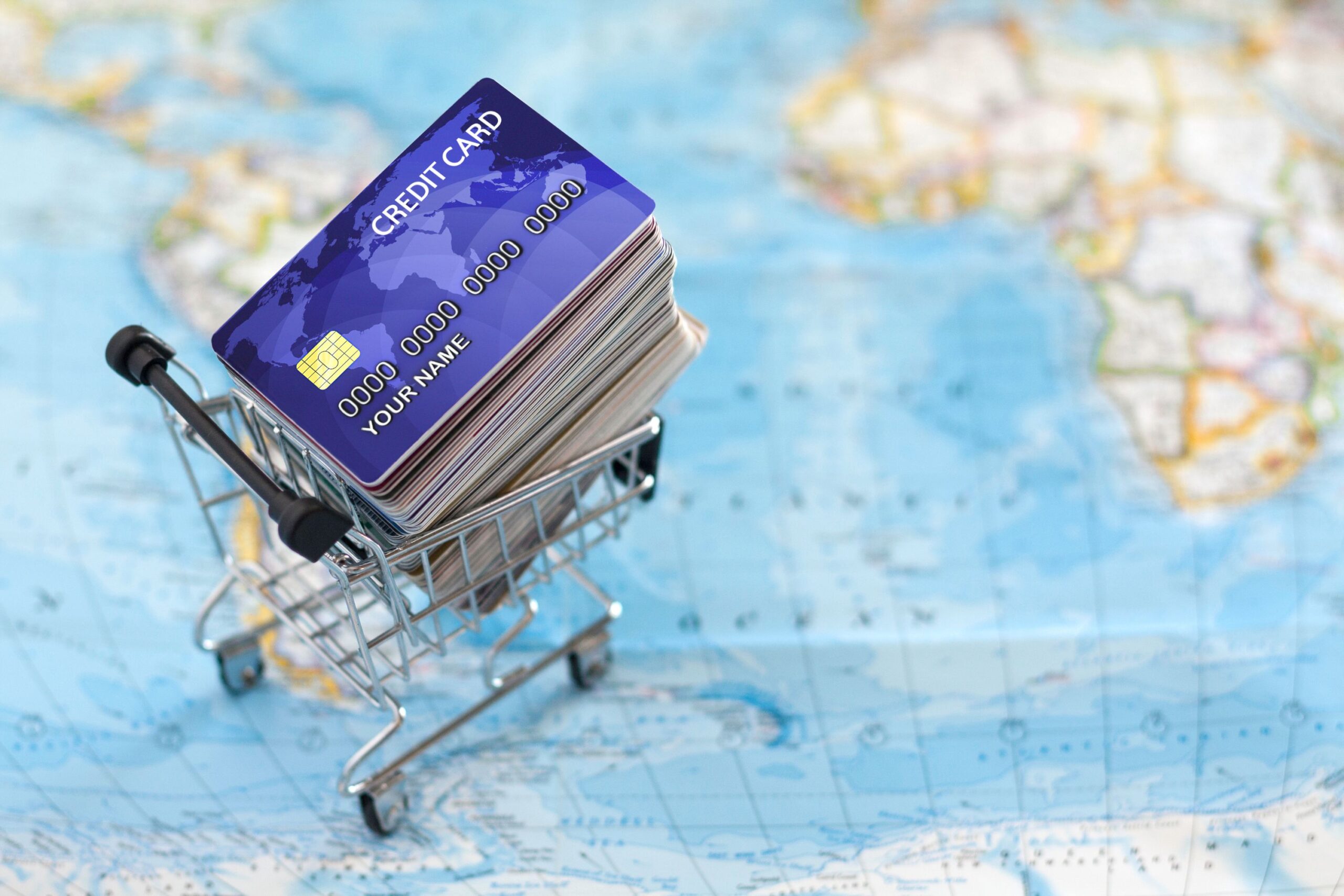When you’re planning an international trip, the first thing to sort out is your flight. Everything else—hotels, tours, even travel insurance—will fall into place once you know your dates. Booking your flight is the anchor that holds your itinerary together. However, if you’re doing it for the first time or want to secure a better deal next time, a few smart tips can help you get it right.
Booking Flights for an International Trip — Start Smart
Flights are usually the most significant expense of any international trip, which is why it makes sense to book them first. And that doesn’t just mean searching for the cheapest ticket. It means knowing when to search, what tools to use, and how to avoid common mistakes that cost travelers time and money.
Start by locking in your travel dates. If you can be flexible by a few days on either end, that can lead to much better fares. Mid-week flights are often cheaper than weekend departures, and early morning or late-night flights tend to have lower prices as well. If you’re booking several months in advance, check prices for a few weeks at a time to get a sense of the trend.
Where to Search for International Flights Online
Most travelers start with flight comparison websites, and that’s a smart move. These platforms let you compare prices across dozens of airlines and booking sites in one place. But here’s the trick—after you find a fare you like, always double-check it on the airline’s official website. Sometimes, you’ll find a better deal or a bonus offer, such as free seat selection or an extra baggage allowance.
Flight search engines like Google Flights, Skyscanner, or Kayak are significant starting points. They provide a calendar view of the most affordable dates and notify you of any price drops. Just don’t assume the first result is the best. Scroll a bit. Sometimes that $50 cheaper ticket is just two lines down.
How Far in Advance Should You Book International Flights?
When you book international flights, timing is everything. For most destinations, the optimal booking window is typically 2 to 6 months in advance. If you book too early, prices might still be inflated. Book too late, and you risk paying a premium or missing out entirely.
For popular international destinations, such as Europe in the summer or Asia during holiday periods, booking 4 to 6 months in advance gives you the best chance of getting a good deal. But if you’re traveling during low seasons, you might find deals even a month out. Some budget airlines also offer last-minute discounts, but don’t rely on them unless your travel dates are flexible.
Consider Stopovers or Connecting Flights
When you’re looking at flight options, nonstop might seem like the most straightforward route, but it’s not always the most affordable. Sometimes, flights with one or two connections are much cheaper. If you don’t mind spending a few extra hours traveling, you could save a few hundred dollars.
Another benefit of stopovers? You can use them to see a second city. Many airlines even offer free or discounted stopover programs. So, for example, if you’re flying to Tokyo with a layover in Seoul, you might be able to stay for a night or two without any extra airfare. It’s a great way to stretch your trip without spending more.
Think About Entry Rules Before Booking a Flight
This one’s easy to miss if you’re focused only on prices. However, before booking your flight ticket online, please verify the visa requirements, entry rules, and passport validity for your destination. Some countries require you to apply for a visa in advance, while others may require a passport valid for at least six months beyond your intended stay. You don’t want to buy a nonrefundable ticket only to find out you’re not cleared to enter.
If you’re transiting through multiple countries, be sure to check the rules for each country as well. Even if you’re not leaving the airport, some countries still require a transit visa depending on your nationality.
Choose Your Seat and Baggage Wisely
After you book your international flight, don’t forget to review the add-ons. Some airlines offer a basic fare that looks cheap until you realize it doesn’t include baggage, meals, or even a seat. Others might bundle everything for a little extra, and that can be worth it.
You’ll also want to decide early on whether you prefer a window seat, an aisle, or extra legroom. Some airlines allow you to choose for free, but many charge a fee. If seat comfort is essential, it’s better to pay a small fee than spend 10 hours in a middle seat next to the bathroom.
Paying for Your Flight Online — Stay Safe
Booking a flight online is quick, but it must also be secure. Use only trusted booking platforms and make sure the payment page has a secure URL (it should start with “https”). Most airlines accept major credit cards, and that’s the safest way to pay. You also receive additional protection in the event of disputes or cancellations.
Avoid using public Wi-Fi when entering payment information. If you’re booking on your phone, use a secure network or data connection. Save the confirmation email, and take a screenshot just in case.
Travel Insurance—Why It’s Smart to Book It with Your Flight
When you’re booking an international trip, one thing that can pay off is adding travel insurance. You might not need it, but if you do, it could save you thousands. If your flight is canceled, delayed, or rerouted, or if your bags are lost for a week, travel insurance steps in.
Some flight booking platforms give you the option to add insurance during checkout. That’s often the easiest way to include it. If you skip it, then you can still purchase a separate policy later, but doing it early ensures you’re covered from the moment you confirm the ticket. Especially if you’re prepaying for hotels, tours, or non-refundable connections, insurance provides a safety net.
How to Get the Best Value When Booking International Flights
Getting the lowest price doesn’t always mean getting the best value. A cheap fare that leaves you stuck in a layover for 18 hours or charges you $80 to check a bag might not be the win you think it is.
So, how do you spot real value? First, compare flight duration, baggage inclusion, and onboard amenities. If two flights are $20 apart, but one includes luggage and a meal, the one that does is the better deal. Second, look at arrival times. Landing at 3:00 a.m. might mean an extra night at a hotel or a long wait before check-in opens.
If you’re flying with budget airlines, be sure to research reviews before booking. Some budget carriers are great, others cut corners that might affect your comfort or schedule.
Booking One-Way or Round Trip — What’s Better?
Here’s something travelers often wonder: Should I book a round-trip ticket or two one-way flights?
Round-trip tickets are generally more affordable and convenient. They lock in your return, and airlines often reward round-trip bookings with discounts. However, if you’re planning a multi-country trip or aren’t sure when you’ll return, booking two one-way tickets provides flexibility.
Use this tip: If you’re traveling between continents, such as from North America to Europe, a round-trip ticket will likely be cheaper. If you’re flying regionally—say, within Southeast Asia—one-way tickets may be a better choice, especially when using budget airlines.
Booking Multi-City International Trips
If you plan to visit more than one country or city, a multi-city flight booking might save you money and hassle. Instead of booking several one-way tickets, search for a multi-city option on airline websites or search engines.
Let’s say you’re flying from New York to London, then to Rome, and finally back to New York. Instead of three separate bookings, you can enter all cities in one search and often get better routing and pricing.
Multi-city bookings also streamline your itinerary. It’s easier to manage when all flights are on one reservation, especially if there’s a schedule change or you need support from the airline.
Should You Use a Travel Agent or Book Flights Yourself?
If you’re new to booking international trips, you might wonder if using a travel agent is worth it. These days, most people book flights online themselves, especially with the help of easy-to-use tools and numerous comparison websites.
However, for complex itineraries, group travel, or special needs, a travel agent can be helpful. They may have access to unpublished fares, loyalty program benefits, or more flexible cancellation policies. That said, make sure you’re not paying unnecessary service fees. If your trip is straightforward, booking it yourself is quicker and often cheaper.
You can test both options to see which one works best for you. Look up flights yourself, and if you’re unsure, request a quote from an agent and compare.
Understanding Airline Fare Classes and Booking Codes
When you’re booking a flight, you’ll often see different price levels for the same route—economy, premium economy, business, and first. However, even within the economy, there are variations known as fare classes.
These fare classes impact refundability, baggage allowance, seating options, and the number of miles earned. Some economy fares let you bring a carry-on and a checked bag. Others only allow a personal item. Some allow changes for a fee, others are entirely non-refundable.
If you’re flying internationally and want flexibility, it’s better to book a slightly higher fare class. You’ll thank yourself if plans change.
Don’t Forget About Entry and Exit Requirements
Booking a flight isn’t just about choosing dates and paying for a ticket. It’s also about making sure you’re allowed into the country. Entry requirements vary—some countries require a visa, while others don’t. A few let you apply for an eVisa online in minutes, while others might require a lengthy application process.
Exit requirements are also necessary. For example, some countries require proof of onward travel as a condition for entry. That means you need a return flight or a ticket showing you’re leaving within a specific timeframe.
Ensure your passport has sufficient blank pages and will remain valid for at least six months after your travel dates. Some airlines might even deny boarding if it doesn’t meet destination rules.
After Booking — What to Do Next?
Once your international flight is booked, it’s time to prepare everything around it. Start by double-checking your confirmation. Ensure that your name matches the one on your passport exactly. Then download the airline’s app. It will keep you updated on any flight changes and allow mobile check-in when the time comes.
You should also take note of baggage policies, check-in times, and any country-specific documents or health declarations. If your airline allows it, choose your seat early.
Closer to departure, check if online check-in is open (usually 24–48 hours before your flight). Print or save your boarding pass, charge your devices, and ensure you have all necessary travel documents.
What Happens If You Need to Cancel or Change Your Flight?
International trips sometimes come with unexpected changes. Plans shift, borders close, emergencies happen. That’s why knowing the airline’s cancellation and change policies before booking is crucial.
Some tickets are fully flexible, allowing you to change your dates or destination without incurring additional fees. Others charge hefty fees—or may not allow changes at all. When booking your international flight online, look carefully at the fare conditions. You’ll usually see a “refundable” or “non-refundable” label, but always read the fine print for specifics.
If you think there’s a chance you might need to cancel, go for a fare that offers flexibility. It’s often a little more expensive upfront, but it gives you peace of mind if things don’t go as planned.
Why Booking Directly with Airlines Can Be Safer
There’s nothing wrong with using a booking website to compare prices, but when it comes to making the final purchase, there’s a reason many travelers prefer booking directly with the airline.
When you book directly, you’ll have fewer issues making changes, selecting seats, adding baggage, or requesting support. If a flight is canceled or rescheduled, airlines typically prioritize direct bookings when offering refunds or rebooking options.
Also, some airlines give better seat choices, early check-in, or loyalty points when you book through them. Third-party sites can be helpful, but for long-haul or complicated trips, booking directly often means better service if something goes wrong.
Traveling with Connections: What You Should Know
Many international flights involve one or two connections. If your layover is short, be sure to check the requirements at your connecting airport. Will you need to go through security again? Do you need to collect and recheck your baggage? Can you stay airside, or will you need a transit visa?
These things matter—especially when you’re booking two separate flights with different airlines. If they’re not part of the same booking, the second airline won’t wait if your first flight is delayed.
Always aim for a layover of at least 2 to 3 hours on international routes, especially in larger or unfamiliar airports. Try to avoid different airport transfers in cities with more than one international airport hub.
Booking Flights and Accommodation Together — Should You?
Some travel sites offer bundled deals, allowing you to book your international flight and hotel in one transaction. It can be convenient, and sometimes it saves money. However, before confirming, please verify the details.
Ensure the hotel meets your expectations in terms of location, amenities, and cancellation policies. Sometimes, booking separately gives you more flexibility, especially if you plan to stay in different areas or cities.
If you’re the type of traveler who wants to book everything in advance, bundles might be a good option. However, if you’re more flexible or prefer to tailor every aspect of your trip, booking flights and accommodations separately may be a better option.
Consider the Local Airport Transportation
It’s easy to get excited once your international flight is booked. But think one step further: how are you getting from the airport to your hotel?
Major international airports often have train, metro, or shuttle bus connections to the airport. Others might be far from city centers, requiring a taxi or rideshare. Check your arrival time—some transportation services stop running late at night or early in the morning.
It’s a good idea to research this before your trip. If possible, book an airport transfer in advance, especially if you’re arriving in a country where the language may be a barrier or if your arrival time falls outside regular business hours.
Booking an International Flight for a Group or Family
If you’re traveling with a group, consider booking all tickets at once. Airlines often charge more for split reservations, even on the same flight. Booking as a single group ensures that everyone is seated together and simplifies changes or support requests.
Some airlines and travel platforms also offer group discounts or special services for families, such as priority boarding or complimentary seat selection. When booking, always check for family-friendly fare conditions, especially regarding baggage and meal preferences for children.
Planning a group trip takes more time, but booking early can help lock in better fares and seat options.
Tools That Help You Track Prices
If you’re not in a rush to book, use price alerts. Most major booking platforms let you set notifications for specific dates or routes. You’ll get emails when the price drops—or when it starts climbing.
Some apps, such as Hopper or Google Flights, also utilize historical data to predict whether prices will increase or decrease. While no tool is 100% accurate, they give a good sense of when to act.
It’s also a good idea to browse in incognito mode or clear your cookies. Some people believe prices increase based on repeated searches. While it’s not always proven, it doesn’t hurt to take that extra step when searching for international flights online.
Check If Entry Includes Airport Taxes and Fees
Some international airports charge entry or departure taxes. In most cases, these are already included in your ticket price; however, this is not always the case.
Check your confirmation or booking details. If there’s an extra airport fee to pay upon arrival or departure, you’ll want to know in advance. Some destinations only accept cash payments at the airport, which can catch travelers off guard.
These extra costs aren’t huge, but it’s better to budget for them instead of getting a surprise before boarding your flight home.
What Documents You’ll Need for International Flights
You’ll always need a passport for international travel. But depending on the destination, you might also need a visa, vaccination proof, health declarations, or travel authorization forms.
After booking your flight, check the official immigration website for your destination to ensure you have all the necessary information. Some countries offer a visa-on-arrival, while others require applications to be submitted weeks in advance. It’s also wise to have printed or saved copies of all your confirmations, in case of poor internet access or technical issues.
Ensure your documents are in order and kept together—passport, boarding pass, visa, and insurance information should be easily accessible at check-in.
FAQs
What is the best day of the week to book international flights?
Airlines often release new fares on Mondays or Tuesdays, and prices tend to dip midweek. Booking on Tuesday or Wednesday usually gives you a better chance at lower prices.
How early should I book an international flight?
For most international routes, booking 2 to 6 months in advance is ideal. High-season destinations may require booking earlier, while off-season routes may offer better deals later.
Can I change the date of my international flight after booking?
Yes, but it depends on the fare type. Flexible tickets allow changes with no or low fees, while basic fares often charge more or don’t allow changes at all.
What happens if I miss a connecting international flight?
If all flights are on the same booking and the delay is the airline’s fault, they must rebook you. If the flights were booked separately, you’ll need to buy a new ticket for the missed leg.
Do I need travel insurance for international trips?
It’s not mandatory, but it’s highly recommended. Travel insurance covers cancellations, delays, medical emergencies, and lost baggage, helping avoid unexpected expenses abroad.
What are the risks of booking through third-party travel sites?
Third-party sites might have less flexible cancellation policies, limited customer support, and hidden fees. Booking directly with the airline can provide more reliable service and benefits.
How do I know if I need a visa for an international trip?
Check the official immigration website of the country you’re visiting. Requirements depend on your nationality and purpose of travel, and rules vary by country.
Should I use a credit card to pay for my international flight?
Yes. Credit cards offer better protection than debit cards, including fraud protection and easier dispute resolution in case of cancellations or delays.
Can I book a round-the-world international trip online?
Yes. Many airlines and alliances offer round-the-world (RTW) tickets through their websites. These let you visit multiple continents under one booking at a discounted rate.
What if I need to cancel my international flight due to an emergency?
If you booked a refundable fare, you can cancel and request a refund. For non-refundable tickets, please don’t hesitate to contact the airline, as some offer exceptions or credits in emergencies.




